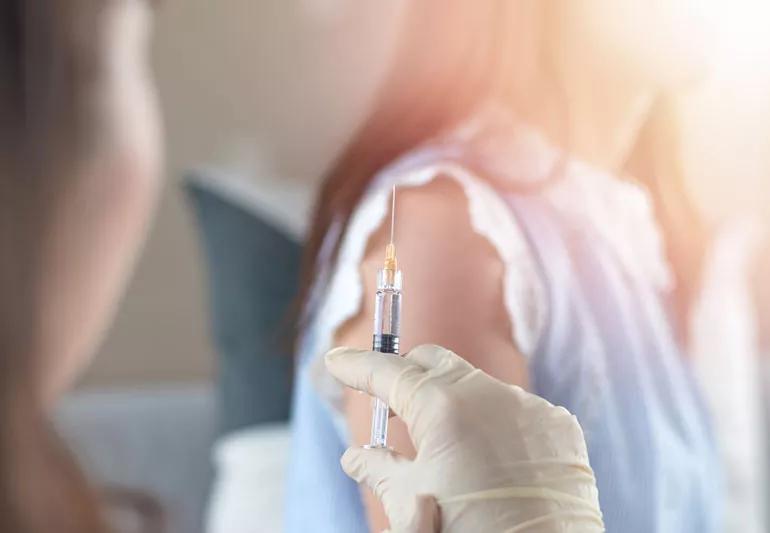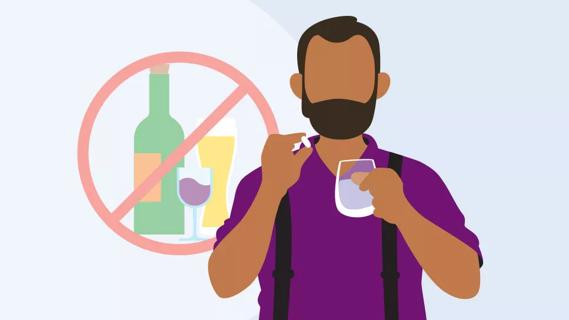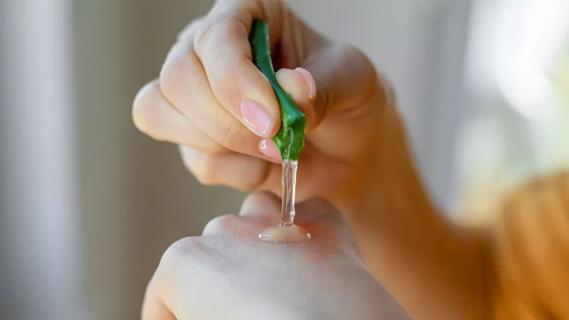Some adults may need a measles booster

Like the bad guy in a horror movie, the measles just won’t die. The current measles outbreak continues to spread across the U.S.
Cleveland Clinic is a non-profit academic medical center. Advertising on our site helps support our mission. We do not endorse non-Cleveland Clinic products or services. Policy
“Measles spreads very quickly among people who aren’t protected from it,” says infectious disease specialist Kristin Englund, MD. “When somebody is coughing or sneezing, the virus can get into the air or make contact with furniture and other surfaces. It remains there for up to two hours, even after the infected person has left the room.”
But with so much information (and fear-mongering) out there about measles in adults and children, how can you protect yourself and your family? Dr. Englund lays out your options.
It seems that living in the pre-vaccine time of tuberculosis, polio and measles helps you here. “If you were born before 1957, you were most likely exposed to measles and are now immune,” Dr. Englund explains.
The measles vaccine was licensed in 1963, but until 1989, people only received one dose of it. One dose is about 93% effective, Dr. Englund says. A second dose boosts that effectiveness to 97%.
“There’s no harm in getting a third vaccine,” she assures.
You most likely have documented proof that you’ve been vaccinated for measles twice in the form of the MMR vaccine, which also includes vaccines for mumps and rubella.
“There are outbreaks all over the world, certainly in areas such as Israel, Ukraine, Germany and the Philippines,” Dr. Englund says.
The CDC recommends this two-dose vaccine schedule for children:
If you’re traveling with an infant 6 to 12 months old to an area with high measles risk, they can receive an early dose of the MMR vaccine. Once they turn a year old, though, they will still need the two-vaccine series.
Dr. Englund says you should talk to your doctor before getting an MMR vaccine if you are:
Learn more about our editorial process.

Poisons are inhaled, ingested or absorbed by your skin, while venoms are delivered by bites and stings

Even a little alcohol can slow your recovery, so it’s best to wait until after you finish your antibiotics before imbibing

Your body works overtime to keep you cool on hot summer days, bringing on sun fatigue

Bleeding is a risk and warrants taking care, but the reward of this lifesaving medication is great

Some natural home remedies may offer relief, but they lack scientific evidence and won’t typically cure the condition

Some types of expired meds may not be harmful, but they probably aren’t worth the risk

Leaving footwear on invites germs, bacteria, toxins and other unwanted guests into your home

Besides questionable effectiveness, herbal supplements aren’t safe for everyone

Your metabolism may torch 1,300 to 2,000 calories daily with no activity

A gentle touch in all the right places may help drain your sinuses